Bird of Paradise
Laura81
10 years ago
Related Stories
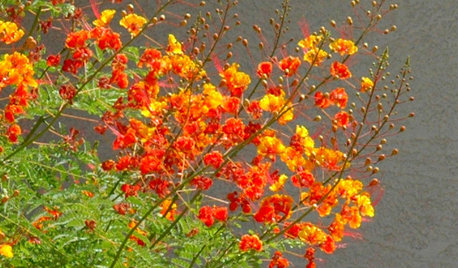
GARDENING FOR BUTTERFLIESGreat Design Plant: Red Bird-of-Paradise Soars With Color
Fiery bursts of red-orange flowers bring hot summer gardens to life, while this shrub's drought tolerance keeps the living easy
Full Story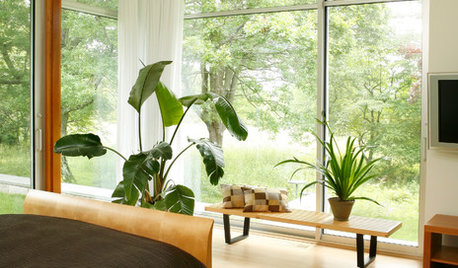
DECORATING GUIDESCreate Your Own Shangri-la With Bird of Paradise Plants
Quintessentially tropical, this broad-leaved beauty can transform bland interiors in the batting of a frond
Full Story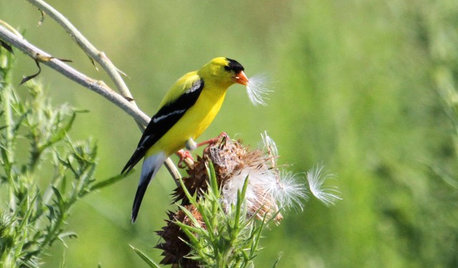
GARDENING FOR BIRDSWild Birds Transform a Woman’s Garden and Life
How Sharon Sorenson created a wildlife haven and became the Bird Lady of Southern Indiana
Full Story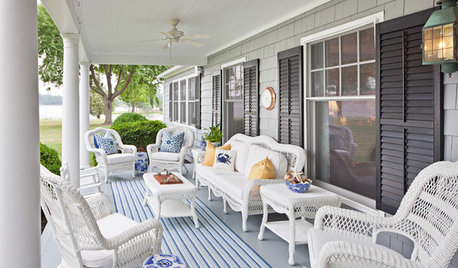
GARDENING AND LANDSCAPING10 Elements of a Porch Paradise
If dreamy days with breezy chats and lazy lounging are your cup of tea, see how to pull your porch together to bring your vision to life
Full Story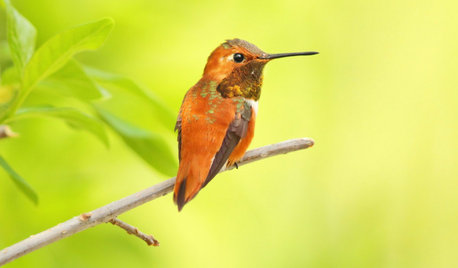
GARDENING GUIDESBackyard Birds: Invite Entertaining Hummingbirds Into Your Garden
Hummingbirds — unique to the Americas — zip through open landscapes seasonally or year-round. Here’s how to attract them
Full Story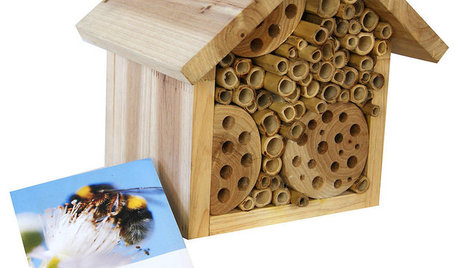
PRODUCT PICKSGuest Picks: 20 Ways to Play Garden Host to Birds and Bees
Perch some of these houses and feeders around your garden, and watch pollinators and feathered friends flock in
Full Story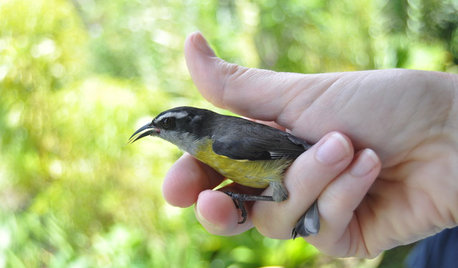
GARDENING FOR BUTTERFLIESBring on the Birds: Natural Habitat Ideas for Gardens of All Sizes
Provide nesting, watering and perching spots inspired by the Costa Rican jungle and watch the birds flock on over
Full Story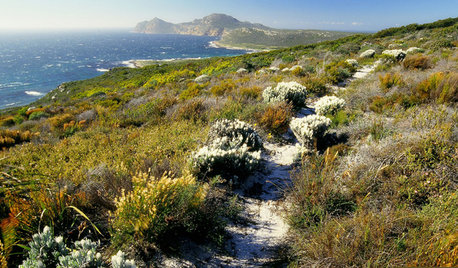
GARDENING GUIDESLet Nature Inspire Your Landscape: Shape a Sea-Inspired Garden
Create your own oceanside paradise even without the ocean, taking cues from natural coastal plantings
Full Story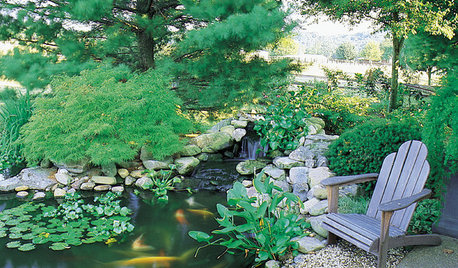
GARDENING AND LANDSCAPINGHow to Make a Pond
You can make an outdoor fish paradise of your own, for less than you might think. But you'll need this expert design wisdom
Full Story
EARTH DAYThe Case for Losing the Traditional Lawn
Work less, help the environment and foster connections by just saying no to typical turf
Full Story





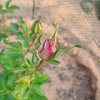
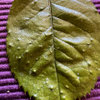
richsd
ChasingCenturies (Arizona 9b)
Related Professionals
Otsego Landscape Architects & Landscape Designers · Wakefield Landscape Contractors · Edmond Landscape Contractors · Damascus Landscape Contractors · Fair Oaks Landscape Contractors · Framingham Landscape Contractors · Mason Landscape Contractors · Mastic Beach Landscape Contractors · Seminole Landscape Contractors · Soddy Daisy Landscape Contractors · Thornton Landscape Contractors · West Haverstraw Landscape Contractors · White Bear Lake Landscape Contractors · Caldwell Carpenters · Del Aire CarpentersLaura81Original Author
DocHollywood 9b Central Tucson
DocHollywood 9b Central Tucson
Laura81Original Author
DocHollywood 9b Central Tucson
Laura81Original Author
ChasingCenturies (Arizona 9b)
DocHollywood 9b Central Tucson